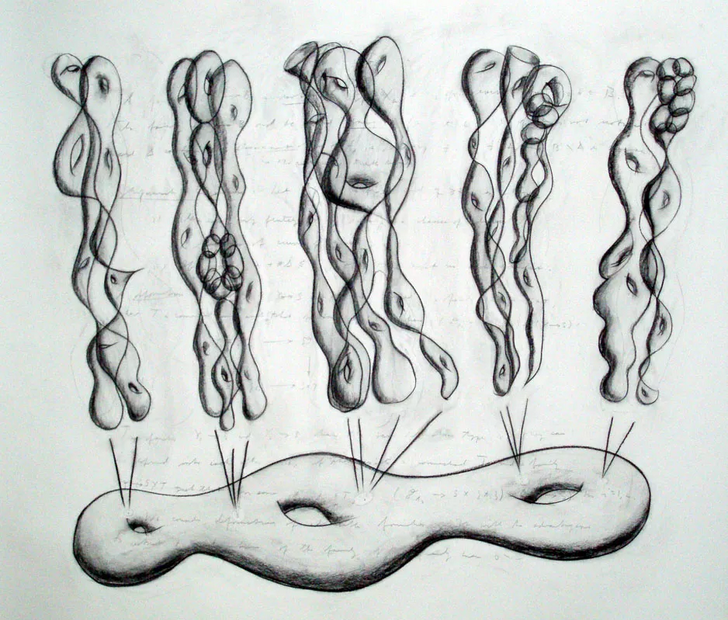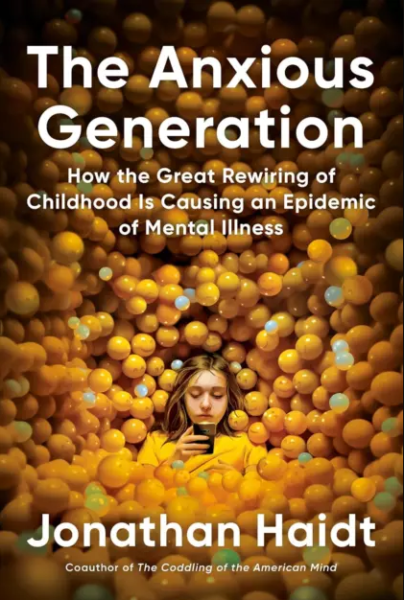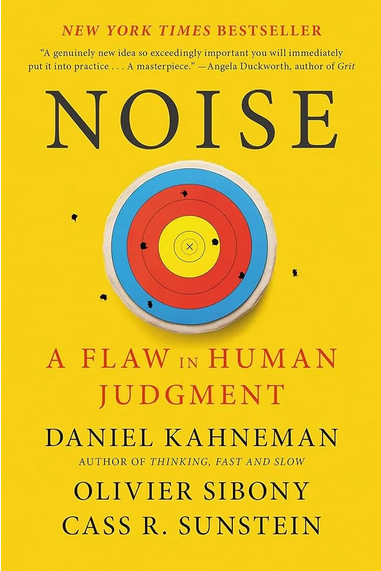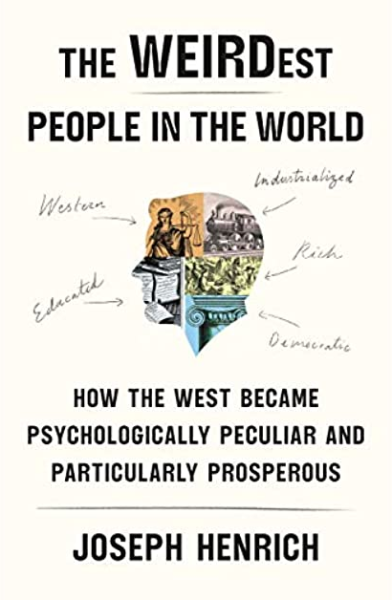I’ve written a lot on how teenagerhood used to be. In my day, when dinosaurs roamed the earth, it was just given that any one person would “be” many different things over the course of his or her adolescence. I myself was briefly a metalhead, a skater, a jock, a nerd, and a preppie, and I think I’m forgetting a few. And I was far from an outlier. That’s just the way it worked back then, because that’s how you figured out who you really are. There comes a point in every metalhead’s life, for instance, when he realizes that metal kinda sucks. Oh, it’s great for pissing off your parents, but once that’s accomplished, there’s really nowhere else to go with it. So you move on, your scratched Ride the Lightning CD being the only relic of your youthful Metallica phase. And since everyone else is doing the same thing, no one is going to call you out as a hypocrite, lest you come back with “Oh yeah, Jessica, you’re so cool in your cheerleader outfit. Weren’t you a Goth last semester?”
These days, though, your “phases” are all over social media. If you pick one, you’d best be prepared to stick with it permanently. And it can be permanent indeed — ask the kids who decided to “transition” when they were fifteen and are now killing themselves in record numbers, because they weren’t really “transgender”, since that doesn’t actually exist. Given all that, there are only a few “safe” identities for kids to pick, and they’re pretty much all just flavors of SJW. Which is why the #wokeness seems to be coming on so strong. There’s really only one or two “safe” ways to express your “individuality” — you can be an SJW berating other SJWs for insufficient #wokeness in the matter of race, or gender, or perhaps health (vegans and covidians), but that’s about it.
Severian, “Mail Bag / Grab Bag”, Rotten Chestnuts, 2021-06-11.
April 24, 2024
April 23, 2024
QotD: Who cares about you?
During my student days at a UCLA economics department faculty/graduate student coffee hour in the 1960s, I was chatting with Professor Armen Alchian, probably the greatest microeconomic theory economist of the 20th century. I was trying to impress Alchian with my knowledge of statistical type I and type II errors. I explained that unlike my wife, who assumed that everyone was her friend until they prove differently, my assumption was everyone was an enemy until they proved otherwise. The result: My wife’s vision maximized the number of her friends but maximized her chances of betrayal. My vision minimized my chances of betrayal at a cost of minimizing the number of my friends.
Alchian, donning a mischievous smile asked, “Williams, have you considered a third alternative, namely, that people don’t give a damn about you one way or another?” Initially, I felt a bit insulted, and our conversation didn’t go much further, but that was typical of Alchian — saying something profound, perhaps controversial, without much comment and letting you think it out.
Years later, I gave Alchian’s third alternative considerable thought and concluded that he was right. The most reliable assumption, in terms of the conduct of one’s life, is to assume that people don’t care about you one way or another. It’s an error to generalize that people are friends or enemies, or that people are out to either help you or hurt you. To put it more crudely, as Alchian did, people don’t give a damn about you one way or another.
Walter E. Williams, “Who Cares About You?”, Townhall.com, 2019-10-01.
April 20, 2024
“Identity quakes”
Andrew Doyle explains why some people cling to aspects of their worldview so tightly because to admit that they were mistaken would actually threaten their individual identity:
Both Gosse’s memoir and Potter’s dramatisation grapple with what Peter Boghossian and James Lindsay (in their book How to Have Impossible Conversations) call an “identity quake”, the “emotional reaction that follows from having one’s core values disrupted”. Their point is that when arguing with those who see the world in an entirely different way, we must be sensitive to the ways in which certain ideas constitute an aspect of our sense of self. In such circumstances, to dispense with a cherished viewpoint can be as traumatic as losing a limb.
The concept of identity quakes helps us to understand the extreme political tribalism of our times. It isn’t simply that the left disagrees with the right, but that to be “left-wing” has become integral to self-conceptualisation. How often have we seen “#FBPE” or “anti-Tory” in social media bios? These aren’t simply political affiliations; they are defining aspects of these people’s lives. This is also why so many online disputes seem to be untethered from reason; many are following a set of rules established by their “side”, not thinking for themselves. When it comes to fealty to the cause, truth becomes irrelevant. We are no longer dealing with disputants in an argument, but individuals who occupy entirely different epistemological frameworks.
Since the publication of the Cass Review, we have seen countless examples of this kind of phenomena. Even faced with the evidence that “gender-affirming” care is unsafe for children, those whose identity has been cultivated in the gender wars will find it almost impossible to accept the truth. Trans rights activists have insisted that “gender identity” is a reality, and their “allies” have been the most strident of all on this point. As an essentially supernatural belief, it should come as no surprise that it has been insisted on with such vigour, and that those who have attempted to challenge this view have been bullied and demonised as heretics.
Consider the reaction from Novara Media, a left-wing independent media company, which once published some tips on how to deceive a doctor into prescribing cross-sex hormones. Novara has claimed that “within hours of publication” the Cass Review had been “torn to shreds”. Like all ideologues, they are invested in a creed, and it just so happens that the conviction that “gender identity” is innate and fixed (and simultaneously infinitely fluid) has become a firm dogma of the identity-obsessed intersectional cult.
Identity quakes will be all the more seismic within a movement whose members have elevated “identity” itself to hallowed status. When tax expert Maya Forstater sued her former employers for discrimination due to her gender-critical beliefs in 2019, one of the company’s representatives, Luke Easley, made a revealing declaration during the hearing. “Identity is reality,” he said, “without identity there’s just a corpse”.
This sentiment encapsulates the kind of magical thinking that lies at the core of the creed. So while it becomes increasingly obvious that gender identity ideology is a reactionary force that represents a direct threat to the rights of women and gay people, there will be many who simply will not be able to admit it. In Easley’s terms, if their entire identity is based on a lie, only “a corpse” remains. From this perspective, to abandon one’s worldview is tantamount to suicide.
April 18, 2024
“… the scary part of town, the place where the true freaks and degenerates hang out, is general topology“
John Psmith does his level best to make mathematics interesting to layfolk like you’n’me:
In our end of year post I threatened to write more math reviews, and multiple people in the comments egged me on. So now, with Jane laid up in the final stages of pregnancy, I have seized control of the Substack for a very special lightning round of math textbooks I recently enjoyed. No, wait! Don’t close the tab! I promise that some of these will be fun for non-mathematicians as well.
- Counterexamples in Topology, by Lynn Arthur Steen and J. Arthur Seebach Jr.
The mathematicians I have known included some eccentric characters. In fact when one considers research mathematicians as a class, it’s usually the normal people who are the exception. But there are degrees of weirdness. One of the most delightful things about the world is how fractal it is, and this extends to human hierarchies. Take any unusual group of people — frequent-flyers, monastics, the ultra-wealthy, members of genealogical societies — and zoom in on them, and it turns out there are even stranger or more elite subgroups buried within. This is true of mathematicians too, each subfield has its reputation, some of them regarded with awe, others with disdain. But ask any mathematician, “Who are the real weirdos? Who are the ones who are truly cracked?” The answer will be unanimous: it’s the topologists.
Topology is the study of spaces in the most abstract sense, so abstract that they may not even support a well-defined notion of distance (if your spaces are guaranteed to have distances, then you are now doing geometry rather than topology). Topology takes a coarser view of space: forget about curvature, distance, or really anything involving numbers at all. To a topologist, two points can be “near” each other or not, “connected” or not, and beyond that it doesn’t matter. This is the source of all the jokes about topologists mistaking donuts for coffee cups,1 but the kind of topology that studies multi-holed donuts, algebraic topology, is actually comparatively tame and normal. Also relatively normal is differential topology, which is the next neighborhood over from differential geometry, and which produces cool videos like this.
No, the scary part of town, the place where the true freaks and degenerates hang out, is general topology. General topology is where we go to figure out the basic definitions and frameworks that underlie the rest of topology. It’s about exploring what nearness and connectedness even are, and when mathematicians are trying to figure out what things are, that usually means probing the outer limits of what they can be. So general topology turns into the study of the most bizarre and deformed and disturbing spaces accessible to human cognition. No wonder its practitioners are a little weird.
Which brings me to this book, whose perversity is laid out right there in the title. It’s a big book of counterexamples to statements which seem obviously, intuitively correct. In general topology, things that seem intuitively correct are usually wrong:2 the field is notorious for proofs that almost work but twist out of your grasp at the last moment. A big book of counterexamples is exactly what you want for understanding why your proof that “all Xs are Ys and all Ys are Xs” falls flat. Seeing the logic fail is one thing, but seeing a concrete example of an X that is not a Y (or vice versa) brings it home with a satisfying finality.
But the real reason I love this book is the names, oh, the names. Let me flip through the table of contents with you: are “the Infinite Cage” and “the Wheel Without Its Hub” examples of topological spaces, or planes of the underworld? Are “Cantor’s Leaky Tent” and “Tychonoff’s Corkscrew” important counterexamples, or Level 2 wizard spells? I could spend hours idly leafing through this book, pondering these twisted and prosperous spaces, imagining them as worlds in themselves, imagining the bizarre sorts of creatures that might live there. Is this a math textbook or an RPG sourcebook? Trick question, they’re the same thing.
1. One of the proudest moments of my mathematical career was when I attended a faculty tea and a distinguished topologist asked me for a donut and I handed him a cup of coffee instead. Everybody lost it. Alas, I turned out to be much worse at math than I am at improvisational comedy, and my mathematical career ended shortly afterwards.
2. This is why we have the “separation axioms“. Every rung on that latter is the “well, actually …” to something that seems self-evident but isn’t.
April 12, 2024
QotD: Prepper fantasy versus prepper reality
… note that this is also a bit of a rebuke to the dominant strain of prepper fantasies, such as those I began this review with. Prepper fantasies are most fundamentally fantasies of agency, dreams that in the right crisis the actions you take could actually matter, and that in the wake of that crisis you could return to a Rousseauian condition of autonomous activity freed from the internal conflicts engendered by societal oppression (whether that oppression takes the form of stifling social convention or HRified bureaucratic fiat). It’s obvious how the prepper fantasies relate to the great survival stories like Robinson Crusoe, or to the pioneer dramas of the American Westward expansion. It’s a little less obvious, but just as deeply true, that they’re connected to stories of rogues, rascals, and reavers like those by Robert E. Howard or Bronze Age Pervert. All of these stories, fundamentally, are about how a man freed from external restraint and internal conflict can apply himself to better his condition.
The thing is these stories are totally ahistorical — the best that solitary survivors have ever managed was to survive, none of them have rebuilt civilization. As Jane notes in her review of BAP, the sandal-clad barbarians have generally been subjected to a “tyranny of the cousins” even more intrusive and meticulous than the gynocratic safetyism that Bronze Age Lifestyle offers an imaginative escape from. And as for the pioneers, Tanner Greer notes that:
Many imagine the great American man of the past as a prototypical rugged individual, neither tamed nor tameable, bestriding the wilderness and dealing out justice in lonesome silence. But this is a false myth. It bears little resemblance to the actual behavior of the American pioneer, nor to the kinds of behaviors and norms that an agentic culture would need to cultivate today. Instead, the primary ideal enshrined and ritualized as the mark of manhood was “publick usefuleness”, similar, if not quite identical, to the classical concept of virtus. American civilization was built not by rugged individuals but by rugged communities. Manhood was understood as the leadership of and service to these communities.
It would be too easy to end the review here, with the implication that the prepper identity is a fantasy of radical individualism and like all such fantasies, kinda dumb. But the thing is, the prepper world has by and large absorbed this critique and incorporated it into its theorizing. In contrast to the libertarian fantasies of the 1970s, second-wave prepperism (reformed prepperism?) is constantly talking about community, the importance of having friends you can trust, of cultivating deep social bonds with your neighbors, etc.
What Yu Gun reminds us is that this is still totally ahistorical, but this time in a way that indicts not only the preppers, but also a much broader swathe of our society. A man without a community is unnatural, but so is a community without leadership, hierarchy, and order. The prepper version of community is a vision of freely contracting individuals respecting each others’ autonomy while cooperating because it’s in their best interests. This is also the folk version of community that motivates much of our economic and legal regime. Scratch an American “communitarian”, and underneath it’s just another individualist.
If you hang out on prepper forums, a recurrent mantra is to “practice your preps”, that is to start living on the margin as if the apocalypse had already occurred. The purpose of this is to gain experience in the skills you’ll need after the end, and to work out the kinks in your routine now, while it’s still easy to make adjustments. Originally this meant practicing getting lost in the woods, using and maintaining your weapon of choice, eating some of your food stockpile, or whatever. In second-wave prepperism it means all that, plus a bunch of new stuff like hanging out with your neighbors, attending community barbecues, and whatever else it is that freely contracting individuals like to autonomously do while temporarily occupying the same space.
But for we third-wave preppers, it has to take on a very different meaning. Greer’s essay that I quoted above is mainly about how leadership and service in local-scale organizations served as training for leadership and service in much larger groups aimed at problems with much higher stakes. In other words, they were practicing their preps. One of the great secrets of leadership is that following and leading are actually closely related skills, and that practice at one of them transfers well to the other. This is difficult for we Americans to see, because an aversion to hierarchy is built into our national character, and consequently we operate with impoverished models of what it means to be in a position of authority or of subordination.
Long ago I read an article contrasting Western and Korean massively-multiplayer online role-playing games (MMORPGs). Even if you know nothing about computer games, you probably know that in most of them you are the hero, the chosen one, the child of destiny. Talk about fantasies of agency! MMORPGs thus have a tricky needle to thread — somehow all the thousands and thousands of players need to simultaneously be the chosen one, the child of destiny, etc., etc. And they mostly accomplish this by just rolling with it and asking everybody to suspend disbelief. But this article claimed that Korean MMORPGs are different — when players join these games, they’re randomly assigned a role. A tiny fraction might become kings or generals or children of destiny, with the power to decide the fates of peoples and kingdoms, but most are given a role as ordinary soldiers or porters or blacksmiths, and toil away at their in-game mundane tasks, without much ability to affect anything at all.
We like to imagine that after the bombs fall and the smoke clears we will emerge as the new Yu Gun, apportioning merit and assigning tasks. And perhaps you will indeed be called upon to do that, so you should prepare yourself to step up and do it. That preparation will involve some practice commanding others and some practice obeying others’ commands, because the two are inextricably bound together. But in life as in Korean video games, there’s isn’t very much room at the top. Far more likely, when the stage of history is set, we will be cast in a supporting role, like the Korean gamer assigned to role-play as a peasant or like Yu’s followers standing in orderly ranks. Let us not turn our noses up at this vocation, the poorly-behaved seldom make history.
John Psmith, “REVIEW: Medieval Chinese Warfare, 300-900 by David A. Graff”, Mr. and Mrs. Psmith’s Bookshelf, 2023-06-05.
April 9, 2024
April 5, 2024
April 2, 2024
Rob Henderson reviews Noise by Daniel Kahneman, Olivier Sibony & Cass R. Sunstein
Rob Henderson reviews the last published work of Nobel prize winner Daniel Kahneman and his co-authors Olivier Sibony and Cass R. Sunstein:
Are crowds smart or dumb? You may have heard the terms “wisdom of the crowds” and the “madness of crowds”. The former idea is that the collective opinion of a group of people is often more accurate than any individual person, and that gathering input from many individuals averages out the errors of each person and produces a more accurate answer. In contrast, the “madness of crowds” captures the idea that, relative to a single individual, large numbers of people are more likely to indulge their passions and get carried away by impulsive or destructive behaviors. So, which concept more accurately reflects reality?
Noise: A Flaw in Human Judgement by Daniel Kahneman, Olivier Sibony, and Cass R. Sunstein provides the answer. The authors share research indicating that “independence is a prerequisite for the wisdom of crowds”. That is, if you want to use crowdsourcing to produce accurate information, you have to ensure that people make their judgments in private. If people provide their answers in a public setting where they can see everyone else’s answers, then the crowd can transform wisdom into madness.
Relatedly, Wharton organizational psychologist Adam Grant has stated that “you get more and better ideas if people are working alone in separate rooms than if they are brainstorming in a group. When people generate ideas together, many of the best ones never get shared. Some members dominate the conversation, others hold back to avoid looking foolish, and the whole group tends to conform to the majority’s taste.” People converge on ideas they believe are held by the majority, when often they are simply acquiescing to the most assertive and strident members of the group. Grant suggests that the best way to sidestep this problem is to have people think up ideas on their own before the group evaluates them.
In Noise, Kahneman and his colleagues report findings indicating that, in tasks involving estimation, such as the number of crimes in a city or geographic distances, crowds are wise as long as they registered their views independently. But if people learn what others estimated, then crowds do worse than individuals. The book states that, “while multiple independent opinions, properly aggregated, can be strikingly accurate, even a little social influence can produce a kind of herding that undermines the wisdom of the crowds”.
There are many reasons why Kahneman’s 2011 book Thinking, Fast and Slow became a groundbreaking hit, while Noise did not reach quite the same heights (Kahneman and his statistically savvy co-authors might cite regression toward the mean). One reason for the difference may be the years in which the books were published. In 2011, the educated class generally favored meritocratic and objective measures for judgment and decision-making. They found the message that we should challenge the role of bias in our everyday judgments appealing, and believed that we should rid ourselves of habits that lead us to judge other people or situations unfairly. Today, however, much of intellectual culture has changed. Now that luxury beliefs are ascendant, relying on objective measures is no longer fashionable.
April 1, 2024
QotD: The anatomy of the April Fool’s joke
A parody consists of the exaggeration and mocking of a source known to both writer and reader; the reader understands it to be false in fact. A satire employs the methods of parody to make a serious point; the reader understands it to be false in fact, but it succeeds in making some point about the real world by exaggeration and mocking of the real world. A hoax is distinct from both in that it attempts to convince the reader that its falsehoods are true.
The AFJ, as a distinct art form, uses the methods of parody and satire to achieve the condition of hoax. It is a subtle art, because the objective of the AFJ author is to achieve suspension of disbelief in the reader, then strain it as near as possible to the breaking point without actually snapping it. This is how the AFJ is distinct from a normal instrumental hoax, for which it is good play not to strain the suspension of disbelief at all.
The AFJ author aims at the strongest possible moment of cognitive rupture – when the reader realizes it was a joke and his perception of the content undergoes a catastrophic lurch. In the hands of a true master the rupture induced by AFJ can become something akin to a Zen moment of enlightenment, changing the reader’s relationship to the subject of the hoax in a lasting way.
There are four levels of possible reader reaction to an AFJ:
Level the Zeroth: AFJ attempted, humor not achieved.
Level the First: Obvious humor, immediate cognitive rupture. The reader instantly catches on that an AFJ is in progress, and laughs. Perhaps he entertains fleetingly the thought that others less perceptive than he might take it seriously.
Level the Second: The reader is briefly taken in, but reaches some assertion or train of phrase that strains his credulity past the breaking point. He re-evaluates what he has read, enjoys the rest as a joke, and entertains rather more seriously the thought that the less perspicacious might be fooled.
Level the Third: The reader swallows it all, hook line and sinker; cognitive rupture does not occur until afterwards, he realizes (or has someone point out to him) that it is April 1st and he has been had.
Level the Fourth: The reader swallows it all, has it pointed out that the work is an AFJ, experiences cognitive rupture, and then repairs the rupture by insisting that the hoax is actually true!
You have achieved the fourth level of mastery of the AFJ when you utter examples in which the distribution of responses includes a large number of Level Threes and a handful of Level Fours. Achieving too many Level Four reactions goes over the line from an AFJ into founding a religion; that is not the AFJ author’s objective, though some examples of hoaxes such as Discordianism and the Rosicrucian Manifestos resemble long-form AFJs and straddle the dividing line with religion in interesting ways.
Eric S. Raymond, “The Four Levels of AFJ Mastery”, Armed and Dangerous, 2011-04-02.
March 22, 2024
QotD: Degenerative progressivism
There are many “progressives” who will claim to have been assaulted if someone makes a remark in their presence which troubles their conscience but who think it is a world of hilarity when an elected official, or anyone who has in fact accomplished something, is made a figure of fun at the hands of an actual assault. There is nothing surprising in this. Only another sad example of what now passes for a once noble aspiration of the left to find dignity in people’s lives no matter their station or situation.
Ghost of a Flea, “Law and order”, Ghost of a Flea, 2005-06-21.
March 18, 2024
Life among the WEIRD
Rob Henderson reviews The WEIRDest People in the World: How the West Became Psychologically Peculiar and Particularly Prosperous by Joseph Henrich:
The word “WEIRD” stands for “Western, Educated, Industrialized, Rich, Democratic.” It is also a convenient way to communicate that people from such societies are psychologically different from most of the rest of the world and from most humans throughout history.
In short, the Western Church (Henrich’s term for the branch of Christianity that rose to power in medieval Europe) enacted a peculiar set of taboos, prohibitions, and prescriptions regarding marriage and family. This dissolved Europe’s kin-based institutions, and gave rise to a more individualistic psychology, which in turn spurred the creation of impersonal markets in which people grew used to interacting with and trusting unrelated strangers, and propelled the development of voluntary institutions, universally applicable laws, and innovation.
Characteristics of WEIRD people
WEIRD people are hyper-individualistic, self-obsessed, nonconformist, analytical, and value consistency. We try to be “ourselves” across social contexts and prize “authenticity”.
The book reviews research indicating that Americans rate those who show behavioral consistency during interactions in different contexts as more “socially skilled” and “likable” compared to those who are more behaviorally flexible. In contrast, non-WEIRD people view personal adjustments as reflecting social awareness and maturity.
In addition to valuing behavioral consistency, WEIRD people are more likely to feel guilt than shame. In contrast, non-WEIRD people are more likely to experience shame as opposed to guilt. Shame is the result of not living up to the expectations of one’s community. Guilt is a private emotion that results from falling short of our own expectations, rather than the community’s.
Relatedly, a recent study found that people can experience shame for being accused of actions they didn’t commit. The accusation alone was enough to elicit this powerful emotion. Shame is a reaction to others believing we did something bad rather than a reaction to actually doing something bad.
Delayed gratification also appears to be more prevalent in WEIRD societies. When researchers offered WEIRD people the choice between a smaller monetary payment up front, or a larger sum later, they tended to choose the larger sum. In contrast, most non-WEIRD people preferred the immediate, smaller, reward.
Interestingly Henrich relays data suggesting that greater patience is most strongly linked to positive economic outcomes in lower-income countries. Put differently, the tendency to defer gratification seems to be especially more important for economic prosperity in countries where formal institutions are less effective. This pattern holds within countries as well, such that patient people obtain higher incomes and more education. Patience is related to success after controlling for IQ and family income, and, even within the same families, more patient siblings obtain more education and higher earnings later in life.
Moreover, WEIRD people are more likely to adhere to rules even in the absence of external sanctions. The book reports that until 2002, U.N. diplomats from other countries were immune from having to pay parking tickets in New York City. Diplomats from the UK, Sweden, Canada, and other countries received a total of zero parking tickets. But diplomats from Bulgaria, Egypt, and Chad, among other non-WEIRD countries accumulated more than 100 tickets per member of their respective delegations. When diplomatic immunity was lifted, parking violations declined, but the gap between countries persisted.
But while they may be patient and rule-following, WEIRD people are more likely to be fair-weather friends. Relative to other populations, WEIRD people assign higher value to impartiality and show less favoritism toward friends, family members, and co-ethnics. We are more likely to abhor nepotism and believe in universally applicable principles.
Slimy “nudgers” want to manipulate the food you buy by “denormalizing” what you enjoy
Christopher Snowden on the self-imagined elites’ desire for you dirt people to eat a different diet than you would voluntarily choose for yourselves:
On Thursday, Legal & General Investment Management’s senior global environmental, social and governance (ESG) manager told Nestlé to sell less sugar. It’s not for want of trying. In 2018, Nestlé launched Milkybar Wowsomes with 30% less sugar than a Milkybar. The company described it as a “great tasting product” that was the result of “a scientific breakthrough” but when it was discontinued in 2020, Nestlé lamented that demand for it had been “underwhelming”. In 2021, it launched a non-HFSS version of Shreddies called Shreddies The Simple One which contained just four ingredients. The company said:
We know that consumers are looking to eat more healthily, especially following the pandemic. Shreddies The Simple One is an exciting new addition to the breakfast table that caters to growing demand, with a delicious taste consumers will love.
Consumers did not, in fact, love it and it was withdrawn from sale the following year.
Today, the King’s Fund has added its voice to the call for mandatory reformulation targets enforced with heavy fines. The King’s Fund’s job has traditionally been to get more money for the NHS but it is under new management with Sarah Woolnough, a former trustee of Action on Smoking and Health and former CEO of Cancer Research UK, so it is now involved in lifestyle regulation.
Compelling food manufacturers to strip out large amounts of fat, salt and sugar would help “denormalise” the routine consumption of unhealthy food, Sarah Woolnough, the chief executive of the King’s Fund, told the Guardian.
The word “denormalise” is taken straight from the anti-tobacco playbook. See how it works yet?
As the Guardian points out, the King’s Fund has done some polling which finds that reformulation is hugely popular in the abstract.
Overall, 67.3% of Britons agree that the government should require companies to reduce the amount of fat, salt and sugar they put in their products, a survey for the influential health thinktank undertaken by Ipsos Mori found. Only 5% disagreed.
This is a beautiful example of the difference between stated preferences and revealed preferences. People love the idea of fat, salt and sugar being removed from food. Who wouldn’t, so long as the food tasted the same? But it doesn’t taste the same. It tastes considerably worse. And when reformulation isn’t physically possible — for example, with nearly all confectionery, biscuits and cakes — the only way to meet the target is by shrinking the product. Some chocolate bars are now so small that a dual pack is the default (and so, as with the sugar tax, big business is doing rather well out of it). And, yes, that is because of the government’s reformulation scheme.
If pollsters asked people if they are in favour of shrinkflation, I doubt many would say yes. As for reformulation, the only way to get an informed opinion would be to do a taste test using the “before” and “after” versions of popular food products and ask people whether the government should mandate the reformulated version and ban the original version. Again, I doubt many people would give unqualified support for reformulation.
Fortunately, we don’t need to carry out such experiments because the public have been offered reformulated products many times in the real world. Sometimes they become popular — in which case there is no need for government coercion — but very often they are a flop, and in many cases they cannot even be attempted.
The British public have put up with a lot from meddlesome puritans in the last 20 years, but I strongly suspect that if the government tried to force us to eat the likes of Milkybar Wowsomes and Shreddies The Simple One, the thin blue line would finally snap.
March 12, 2024
QotD: Isaiah Berlin on Niccolò Machiavelli
When asked about Machiavelli’s reputation, people use terms like “amoral”, “cynical”, “unethical”, or “unprincipled”. But this is incorrect. Machiavelli did believe in moral virtues, just not Christian or Humanistic ones.
What did he actually believe?
In 1953, the British philosopher Isaiah Berlin delivered a lecture titled “The Originality of Machiavelli”.
Berlin began by posing a simple question: Why has Machiavelli unsettled so many people over the years?
Machiavelli believed that the Italy of his day was both materially and morally weak. He saw vice, corruption, weakness, and, as Berlin says, “lives unworthy of human beings”. It’s worth noting here that around the time that Machiavelli died in 1527, the Age of Exploration was just kicking off, and adventurers from Italy and elsewhere in Europe were in the process of transforming the world. Even the shrewdest individuals aren’t always the best judges of their own time.
So what did Machiavelli want? He wanted a strong and glorious society. Something akin to Athens at its height, or Sparta, or the kingdoms of David and Solomon. But really, Machiavelli’s ideal was the Roman Republic.
To build a good state, a well-governed state, men require “inner moral strength, magnanimity, vigour, vitality, generosity, loyalty, above all public spirit, civic sense, dedication to security, power, glory”.
According to Machiavelli, these are the Roman virtues.
In contrast, the ideals of Christianity are “charity, mercy, sacrifice, love of God, forgiveness of enemies, contempt for the goods of this world, faith in the hereafter”.
Machiavelli wrote that one must choose between Roman and Christian virtues. If you choose Christianity, you are selecting a moral framework that is not favorable to building and preserving a strong state.
Machiavelli does not say that humility, compassion, and kindness are bad or unimportant. He actually agrees that they are, in fact, good and righteous virtues. He simply says that if you adhere to them, then you will be overrun by more unscrupulous men.
In some instances, Machiavelli would say, rulers may have to commit war crimes in order to ensure the survival of their state. As one Machiavelli translator has put it: “Men cannot afford justice in any sense that transcends their own preservation”.
From Berlin’s lecture:
If you object to the political methods recommended because they seem to you morally detestable … Machiavelli has no answer, no argument … But you must not make yourself responsible for the lives of others or expect good fortune; you must expect to be ignored or destroyed.
In a famous passage, Machiavelli writes that Christianity has made men “weak”, easy prey to “wicked men”, since they “think more about enduring their injuries than about avenging them”. He compares Christianity (or Humanism) unfavorably with Paganism, which made men more “ferocious”.
“One can save one’s soul,” writes Berlin, “or one can found or maintain or service a great and glorious state; but not always both at once.”
Again, Machiavelli’s tone is descriptive. He is not making claims about how things should be, but rather how things are. Although it is clear what his preference is.
He writes that Christian virtues are “praiseworthy”. And that it is right to praise them. But he says they are dead ends when it comes to statecraft.
Machiavelli wrote:
Any man who under all conditions insists on making it his business to be good, will surely be destroyed among so many who are not good. Hence a prince … must acquire the power to be not good, and understand when to use it and when not to use it, in accord with necessity.
To create a strong state, one cannot hold delusions about human nature:
Everything that occurs in the world, in every epoch, has something that corresponds to it in the ancient times. The reason is that these things were done by men, who have and have always had the same passions.
Rob Henderson, “The Machiavellian Maze”, Rob Henderson’s Newsletter, 2023-12-09.
March 11, 2024
“Is it possible that the new therapy culture and the emphasis on introspection is actually making things worse?”
In Quillette, Brandon McMurtrie asks us to consider why, with more people in therapy than ever before, the overall mental health of the population is declining:
Why has mental health got worse given the prevailing emphasis on self-care and accurately knowing and expressing oneself? And why do people and groups most inclined to focus on their identity appear to be the most distressed, confused, and mentally unwell? Is it possible that the new therapy culture and the emphasis on introspection is actually making things worse?
I am not the first to notice these developments — Abigail Shrier’s new book Bad Therapy has carefully delineated a similar argument. Her arguments are elsewhere supported by research on semantic satiation and ironic uncertainty, the effects of mirror gazing, the effects of meditation, and how all this relates to the constant introspection encouraged by therapy culture and concept creep.
Satiation and Its Effects
Semantic satiation is the uncanny sensation that occurs when a word or sentence is repeated again and again, until it appears to become foreign and nonsensical to the speaker. You may have done this as a child, repeating a word in quick succession until it no longer seems to be recognizable. It’s a highly reliable effect — you can try it now. Repeat a word to yourself quickly, out loud, for an extended period, and really focus on the word and its meaning. Under these circumstances, most people experience semantic satiation.
This well-studied phenomenon — sometimes called “inhibition”, “fatigue”, “lapse of meaning”, “adaptation”, or “stimulus satiation” — applies to objects as well as language. Studies have found that compulsive staring at something can result in dissociation and derealization. Likewise, repeatedly visually checking something can make us uncertain of our perception, which results, paradoxically, in uncertainty and poor memory of the object. This may also occur with facial recognition.
Interestingly, a similar phenomenon can occur in the realm of self-perception. Mirror gazing (staring into one’s own eyes in the mirror) may induce feelings of depersonalization and derealization, causing distortions of self-perception and bodily sensation. This persistent self-inspection can result in a person feeling that they don’t recognize their own face, that they no longer feel real, that their body no longer feels the same as it once did, or that it is not their body at all. Mirror-gazing so reliably produces depersonalization and realization (and a wide range of other anomalous effects), that it can be used in experimental manipulations to trigger these symptoms for research purposes.
[…]
The Satiation of Gender Identity
The number of people identifying as non-binary or trans has skyrocketed in recent years, and a growing number of schools are now teaching gender theory and discussing it with children — sometimes in kindergarten, more often in primary school, but especially in middle- and high-school (though in other schools it is entirely banned). While this may be beneficial for those already struggling with gender confusion, it may also present an avenue for other children to ruminate and become confused via “identity satiation”.
The kind of gender theory increasingly taught in schools encourages children to spend extended periods of time ruminating on self-concepts that most would not otherwise have struggled with. They are given exercises that encourage them to doubt their own unconscious intuitions about themselves, and to ruminate on questions like “Do I feel like a boy?” and “What does it mean to feel like a boy?” and “I thought I was a boy but what if I am not?”
Such questions are often confusing to answer and difficult to express, even for adults unaffected by gender dysphoria. But asking children to ruminate in this way may lead to confusion and depersonalization-derealization via the mechanisms described above. “Identity satiation” may then lead them to decide they are non-binary or trans, especially when identifying as such is rewarded with social recognition and social support. Many people who subsequently de-transitioned have described this process: “I never thought about my gender or had a problem with being a girl before”.











